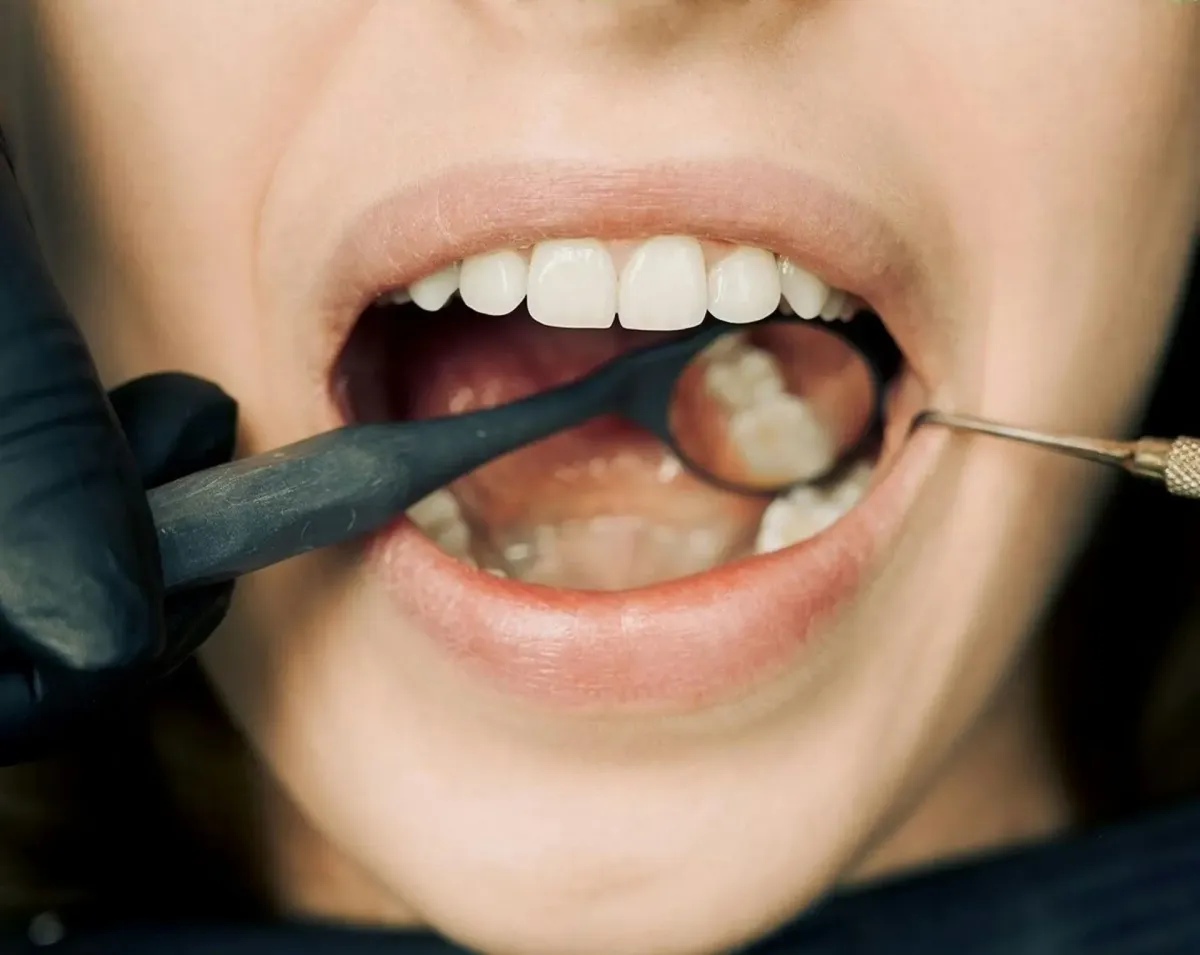READ UP ON THE LATEST HORMONE AND THYROID NEWS!

Fluoride and your thyroid. Let's talk about it!
As a thyroid specialist, I find it crucial to address the concerns surrounding fluoride exposure and its potential harm to thyroid function. While fluoride has been widely promoted for its dental benefits, emerging research suggests a more nuanced understanding of its effects on overall health, particularly on the delicate balance of thyroid hormones.
Understanding Thyroid Function
Before delving into the effects of fluoride, let's briefly review the thyroid gland's essential role in the body. Situated in the neck, this small, butterfly-shaped gland produces hormones—triiodothyronine (T3) and thyroxine (T4)—that regulate metabolism, growth, and development. The intricate feedback loop involving the thyroid-stimulating hormone (TSH) from the pituitary gland ensures proper hormone levels and metabolic activity.
While fluoride has been championed for its role in preventing dental caries, concerns have emerged regarding its potential adverse effects on thyroid function. Research indicates that fluoride can disrupt thyroid activity through multiple mechanisms:
Inhibition of Enzymes: Fluoride can inhibit enzymes involved in thyroid hormone synthesis, potentially leading to decreased hormone production.
Displacement of Iodine: Iodine is essential for thyroid hormone synthesis. Excessive fluoride exposure may displace iodine, disrupting hormone production and leading to thyroid dysfunction.
Immune Modulation: Fluoride may influence immune function, potentially triggering autoimmune thyroid conditions such as Hashimoto's thyroiditis.
Hidden Sources of Fluoride
Fluoride exposure extends beyond fluoridated water and dental products. Here are some surprising sources of fluoride:
Water Supply: Fluoride is often added to public water supplies to prevent tooth decay. However, naturally occurring fluoride in groundwater can also contribute to exposure.
Processed Foods and Beverages: Many processed foods and beverages contain fluoride, either from water used in production or added as a preservative.
Tea: Certain varieties of tea, particularly those grown in fluoride-rich soil, can contain high levels of fluoride.
Pesticides and Fertilizers: Some pesticides and fertilizers contain fluoride compounds, leading to potential contamination of fruits, vegetables, and grains.
Dental Products: While dental products like toothpaste and mouthwash are obvious sources of fluoride, they can contribute significantly to overall exposure, especially if ingested.
Mitigating Fluoride Exposure
Given the potential risks associated with fluoride, it's essential to take proactive steps to reduce exposure:
Water Filtration: Investing in a high-quality water filtration system can help remove fluoride from drinking water, safeguarding against excessive exposure. Try out Epic Water Filters. Code ANGELABROWN will get you 20% off.
Choose Fluoride-Free Dental Products: Opt for fluoride-free toothpaste, mouthwash, and dental treatments to minimize direct exposure. RIsewell is one of my favorites! Grab some here with code ANGELABROWN10.
Dietary Choices: Prioritize fresh, whole foods over processed options to reduce fluoride intake from contaminated sources.
Swap Your Tea: While tea offers numerous health benefits, individuals concerned about fluoride exposure should opt for fluoride free options including Pique Tea.
Regular Monitoring: Individuals with thyroid concerns should undergo regular thyroid function tests to detect any abnormalities promptly.
In conclusion, understanding the potential impact of fluoride on thyroid health underscores the importance of informed decision-making. By taking proactive steps to minimize fluoride exposure from various sources, individuals can protect their thyroid function and promote overall well-being. As a thyroid specialist, I am committed to equipping individuals with the knowledge and tools necessary to prioritize their health and make informed choices for optimal thyroid function.

Fluoride and your thyroid. Let's talk about it!
As a thyroid specialist, I find it crucial to address the concerns surrounding fluoride exposure and its potential harm to thyroid function. While fluoride has been widely promoted for its dental benefits, emerging research suggests a more nuanced understanding of its effects on overall health, particularly on the delicate balance of thyroid hormones.
Understanding Thyroid Function
Before delving into the effects of fluoride, let's briefly review the thyroid gland's essential role in the body. Situated in the neck, this small, butterfly-shaped gland produces hormones—triiodothyronine (T3) and thyroxine (T4)—that regulate metabolism, growth, and development. The intricate feedback loop involving the thyroid-stimulating hormone (TSH) from the pituitary gland ensures proper hormone levels and metabolic activity.
While fluoride has been championed for its role in preventing dental caries, concerns have emerged regarding its potential adverse effects on thyroid function. Research indicates that fluoride can disrupt thyroid activity through multiple mechanisms:
Inhibition of Enzymes: Fluoride can inhibit enzymes involved in thyroid hormone synthesis, potentially leading to decreased hormone production.
Displacement of Iodine: Iodine is essential for thyroid hormone synthesis. Excessive fluoride exposure may displace iodine, disrupting hormone production and leading to thyroid dysfunction.
Immune Modulation: Fluoride may influence immune function, potentially triggering autoimmune thyroid conditions such as Hashimoto's thyroiditis.
Hidden Sources of Fluoride
Fluoride exposure extends beyond fluoridated water and dental products. Here are some surprising sources of fluoride:
Water Supply: Fluoride is often added to public water supplies to prevent tooth decay. However, naturally occurring fluoride in groundwater can also contribute to exposure.
Processed Foods and Beverages: Many processed foods and beverages contain fluoride, either from water used in production or added as a preservative.
Tea: Certain varieties of tea, particularly those grown in fluoride-rich soil, can contain high levels of fluoride.
Pesticides and Fertilizers: Some pesticides and fertilizers contain fluoride compounds, leading to potential contamination of fruits, vegetables, and grains.
Dental Products: While dental products like toothpaste and mouthwash are obvious sources of fluoride, they can contribute significantly to overall exposure, especially if ingested.
Mitigating Fluoride Exposure
Given the potential risks associated with fluoride, it's essential to take proactive steps to reduce exposure:
Water Filtration: Investing in a high-quality water filtration system can help remove fluoride from drinking water, safeguarding against excessive exposure. Try out Epic Water Filters. Code ANGELABROWN will get you 20% off.
Choose Fluoride-Free Dental Products: Opt for fluoride-free toothpaste, mouthwash, and dental treatments to minimize direct exposure. RIsewell is one of my favorites! Grab some here with code ANGELABROWN10.
Dietary Choices: Prioritize fresh, whole foods over processed options to reduce fluoride intake from contaminated sources.
Swap Your Tea: While tea offers numerous health benefits, individuals concerned about fluoride exposure should opt for fluoride free options including Pique Tea.
Regular Monitoring: Individuals with thyroid concerns should undergo regular thyroid function tests to detect any abnormalities promptly.
In conclusion, understanding the potential impact of fluoride on thyroid health underscores the importance of informed decision-making. By taking proactive steps to minimize fluoride exposure from various sources, individuals can protect their thyroid function and promote overall well-being. As a thyroid specialist, I am committed to equipping individuals with the knowledge and tools necessary to prioritize their health and make informed choices for optimal thyroid function.

CALL US TODAY! (314) 226-3137
Content, including images, displayed on this website is protected by copyright laws. Downloading, republication, retransmission or reproduction of content on this website.

